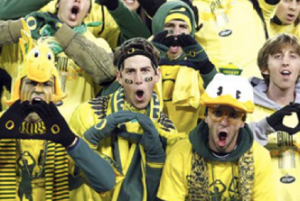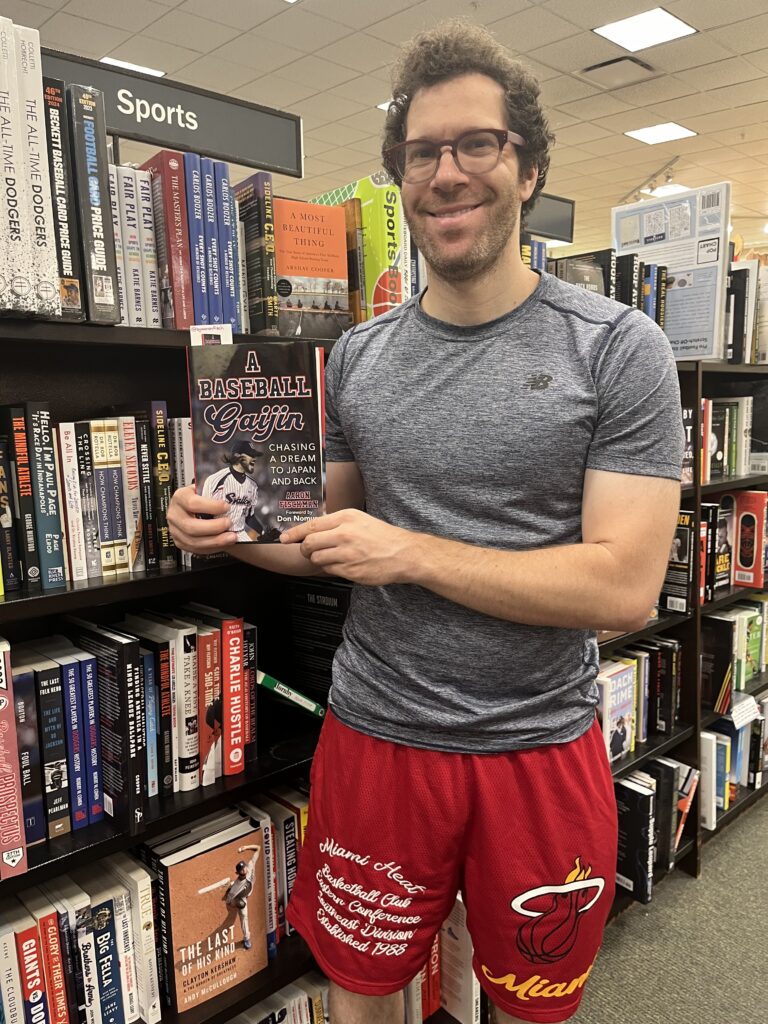2011 USC Football Behind Enemy Lines
Q&A With Oregon Writers
 For the second time in three weeks, the USC Trojans will have a chance to upset a Top Five team.
For the second time in three weeks, the USC Trojans will have a chance to upset a Top Five team.
In fact, three weeks ago, the Trojans came painfully close to upsetting the Stanford Cardinal before fumbling the game away in triple-overtime.
Last week, in a highly anticipated matchup, the Oregon Ducks accomplished precisely what the Trojans were unable to do two weeks earlier. They handed Stanford its first loss.
Stanford was plagued by dropped passes and a slippery field (that seemingly only affected the home team), but Oregon undoubtedly earned the crucial victory.
The Ducks continued their season-long ground assault with more than 200 yards to go with three touchdowns. Oregon also got to Cardinal quarterback Andrew Luck three times and was able to force five turnovers.
The win vaulted the Ducks to No. 4 in the AP and BCS rankings, just one spot behind the Alabama Crimson Tide. Like Oregon, Alabama’s only loss came against the No. 1 ranked team in the nation, the LSU Tigers.
With two games remaining, Oregon junior running back LaMichael James needs just 293 rushing yards to record 1,500 yards on the ground for a third straight season. He’s right on pace, considering the 5-foot-9 back averages 151 rushing yards per game.
Last season, James torched the Trojan defense for 239 yards and three touchdowns en route to a 53-32 Ducks victory.
If Oregon can win its last two contests and get a little lucky (specifically, an Oklahoma State or LSU loss), the Ducks have a chance of playing in a second consecutive BCS Championship game.
Without bowl eligibility, the Trojans’ singular aim is to play spoiler.
Rob Moseley of The Register-Guard and Ken Goe of The Oregonian have graciously agreed to help us preview Saturday night’s crucial game, a game that will undoubtedly have national implications. Can the Trojans dash the Ducks hopes? Read on to find out what our trusty Oregon beat writers think.
1. How do this year’s Ducks compare with last year’s team that lost in the BCS National Championship game?
Rob Moseley: They lost a lot from last year, particularly three seniors on the offensive line (Bo Thran, Jordan Holmes, C.E. Kaiser), two at receiver (Jeff Maehl, D.J. Davis) and two at linebacker (Casey Matthews, Spencer Paysinger) who all were big-time contributors and also the leadership core for the 2010 team. Those position groups remain the team’s weak spots — to the extent a 9-1 team has “weak spots” — but a big key is that over the last few weeks the current team has jelled in such a way that the loss of their leadership is no longer an issue. The 2011 team is beginning to resemble the 2010 team in that it’s going to score, often and quickly, and it’s going to play enough speedy guys on defense who will make enough plays to win games.
Ken Goe: It’s a similar team, probably not quite as good at receiver and definitely younger at cornerback, able to mount a better pass rush. Darron Thomas is a more experienced quarterback and the Ducks are able to do more with him. But he’s been hurt, which has held him back a little.
2. To what extent did Oregon’s opening loss to LSU strengthen the Ducks going forward?
RM: It took a while for that to manifest itself, but the win at Stanford showed that Oregon did indeed benefit from that experience. Against LSU, the Ducks made several mistakes and couldn’t overcome them. Against Stanford, the Ducks made several mistakes but remained poised and overcame them. The Cardinal did not, and that was the difference in the game.
3. If the season ended today, should LaMichael James win the Heisman trophy? Why or why not?
RM: Doubtful. His relatively unimpressive numbers in the first two games combined with two and a half games lost to an injury mean he’s had too much ground to make up. Had he not missed those games to injury, he’d be the runaway favorite right now, owing to Oregon’s win over Stanford last week.
KG: Probably not. I think it hurt him to miss two games in the middle of the season, and he didn’t have his best game on a big stage in the season-opening loss to LSU. That said, his performance at Stanford helped, and if he can have that kind of game against USC, he could play his way back into contention.
4. Running back D’Anthony Thomas was very highly touted coming out of Crenshaw High School, but to what extent are you surprised by the immediate impact he’s had at the collegiate level?
KG: I didn’t know a human being could be that fast and have that kind of instant acceleration. I think that surprises defenses too. He is not a big guy, so Oregon has limited his touches. But he is an explosion play waiting to happen every time he touches the ball.
5. The Ducks boast the best running game (excluding teams that rely on the option) in the country. Junior quarterback Darron Thomas has been very careful passing the ball, and although he was much more of a running threat last year, he can still take off and run when left unattended. If you were USC defensive coordinator Monte Kiffin, how would you aim to attack Oregon’s juggernaut of an offense?
RM: Key on James in the running game, and mix up coverages to keep Thomas off-balance. He’s not the world’s most accurate passer, and if you can make him throw into coverage, you stand a chance of forcing turnovers and getting that offense off the field.
KG: Well the Ducks run option, if not as much as in the past. Thomas has been hurt, but he ran effectively against Stanford. If I were Monte Kiffin, I would overload to stop the run and dare Oregon to beat me through the air. The Ducks might be able to do it, but I think they would rather run and are better on the ground than in the air. But if the Trojans take that approach, they should know where De’Anthony Thomas is at all times.
6. The Ducks’ defense is playing extremely well, after it followed its dominant effort against the Washington Huskies with another impressive showing against Andrew Luck and the Stanford Cardinal. Over their last two games, the Ducks have secured nine sacks and forced eight turnovers (five against the Cardinal). What are the primary reasons for the defense’s recent success?
RM: A relatively young group has really improved its grasp of the defense in the wake of losing six senior starters from last year. Oregon does a lot with disguises, which demands that the Ducks play with some savvy, which only veterans are really able to do. Now that the top 20 or so regulars all have a better grasp of the defense due to the experience of playing more this season, they’re more comfortable showing different looks pre-snap and then playing the base defense.
KG: The Ducks are very sophisticated defensively. They will use a lot of stunts and unorthodox blitzes. They have fast, athletic players at defensive end and outside linebacker. You’re never sure who is coming, and from which angle, and who is dropping into coverage. When they get ahead, as they did against Washington and Stanford, and put an offense in must-pass situations, they are particularly lethal.
7. How was Oregon able to contain the prolific Cardinal offense? Will a similar strategy work against the Trojans? Why or why not?
RM: A huge key was that Stanford was missing its top receiver and top tight end, and the Cardinal dropped a bunch of passes last week. With Woods (if healthy) and Lee out there for Barkley, it’s hard to figure the Ducks will be so lucky again this week. Also, I referred earlier to Stanford not reacting well when things went sideways, and I think they got away from the running game too early because they fell behind. They should have kept pounding away on the ground, because the Ducks are beat up at defensive tackle and inside linebacker.
KG: The Ducks got ahead of Stanford and made the Cardinal play from behind. Early in the game, Stanford ran effectively using that smash-mouth offense. That isn’t effective in the second half when you’re two TDs behind. It will be more difficult against USC, because the Trojans are so much better at receiver. I think if the Trojans get behind, it’s not fatal. They have the big-play capability to get back into the game in a hurry if necessary.
8. For Saturday, rain and snow showers are expected in Eugene with a high of 41 degrees. In what way could such weather impact how the game will be played? In your opinion, would it benefit either team?
RM: Conventional wisdom states that Oregon will benefit, but the Ducks have a whole lot of guys from SoCal and Texas who much prefer warm weather. I don’t think weather will prove to be much of an advantage to either team.
KG: How often does it snow or sleet in Los Angeles? Advantage, Oregon.
9. From Oregon’s perspective, what are the keys to winning Saturday’s big game?
KG: Defensively containing USC’s receivers, getting pressure on Matt Barkley to disrupt his rhythm, and offensively, getting the running game cranked up. The Autzen crowd will be a factor if Oregon is winning or the game is close, and particularly if USC is third-and-long. Turnovers always are critical, and so are plays in the special teams. Check out Oregon’s net punting average.
10. What are the keys to the game for the USC Trojans if they are to pull off the road upset in Eugene?
RM: Shut down James while not losing track of De’Anthony Thomas, stick with the running game as long as possible and hit a couple of big plays through the air. That would probably shock the UO defense a bit, because the Ducks have been very good at limiting big plays all year. It would be interesting to see how they’d react.
11. Who will win Saturday night’s contest? Please include an expected score.
RM: If Woods plays, I give the Trojans a fighting chance. If not, Ducks, 48-24.
KG: Oregon 37, USC 27
Originally published by Neon Tommy



